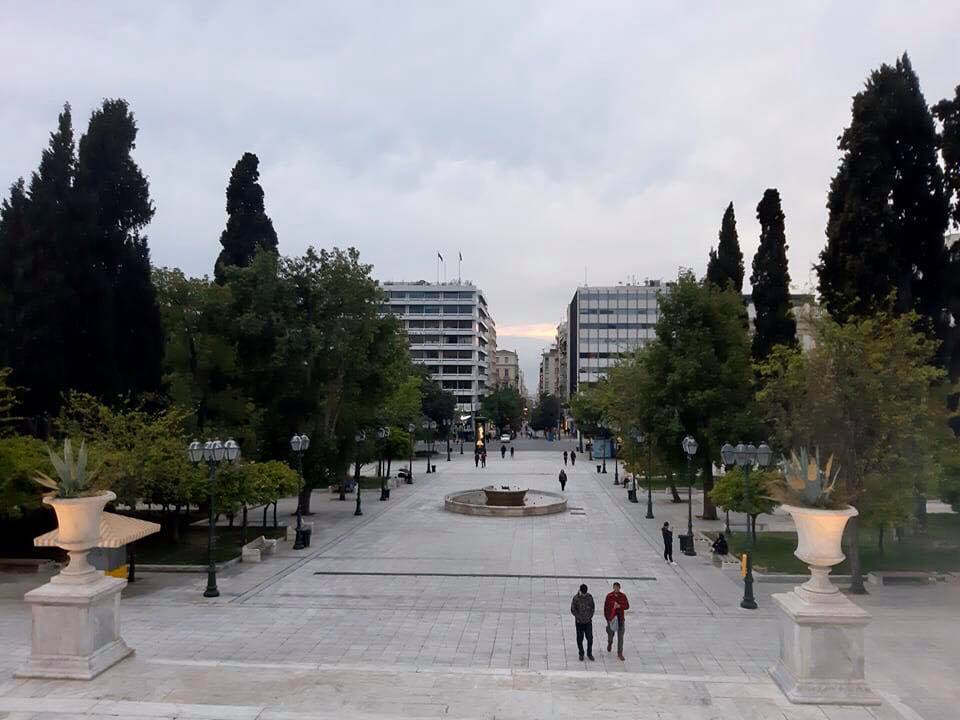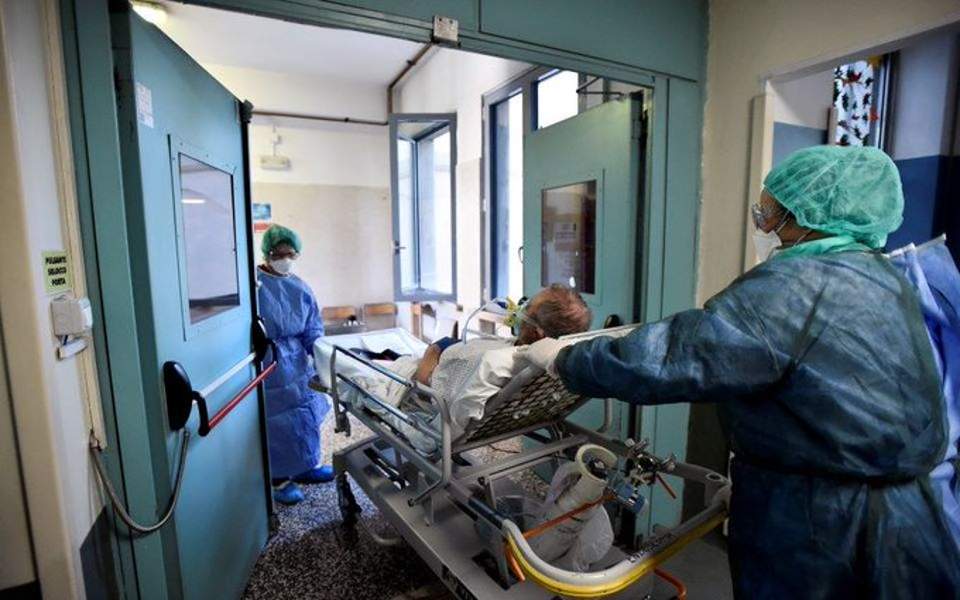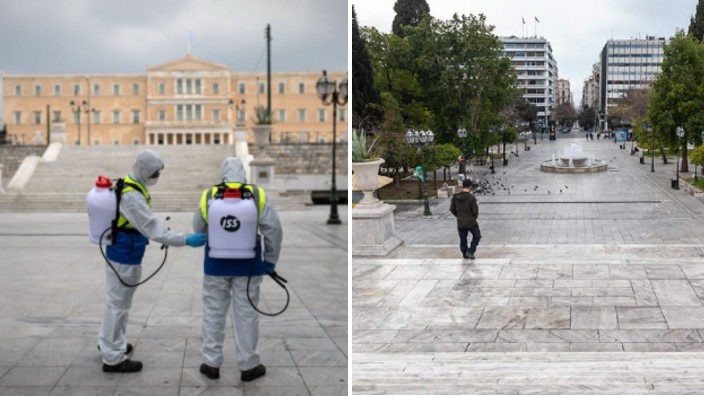After a spike in COVID-19 cases, Greece entered a second nationwide lockdown in the early morning hours of Saturday.
Greeks lined up outside of shops on Friday to buy essentials before the lockdown but now, the once-bustling streets are notably empty. Few people can be seen walking their dogs or going out for exercise.
The lockdown, which will last until November 30, resembles the initial lockdown in Greece in spring.
Movement will be limited to essentials, all retails stores have closed and travel between regions is banned.

Secondary schools have closed, switching to distance learning. Kindergartens and primary schools remain open.
READ MORE: Greece to enter second nationwide lockdown.
Authorities have also reintroduced a system obliging citizens to send text messages to a government number to leave home to work, shop, visit a doctor or take exercise.
Police have been stationed around the country to ensure citizens are observing the anti-virus measures.
For those who don’t, they can expect a fine of 300 euros. Employers who provide false movement permits for employees will also be fined 500 euros, while companies that operate in violation of the new measures and the lockdown face fines of between 3,000 and 5,000 euros.
Record 35 deaths from COVID-19 announced:
The lockdown comes just as Greek health authorities announced a staggering 1,914 new cases of the coronavirus, including a record 35 deaths, on Sunday.
Of the country’s 1,063 intensive care units, 734 are occupied, 259 with coronavirus patients.
The total number of confirmed cases in Greece since the start of the pandemic is 56,698, with 734 deaths.

Researchers at the chemistry department of the University of Athens have also analysed waste in Athens and estimate that 1.5 to 2 percent of the capital’s 4.2 million population are active coronavirus carriers, which would mean 63,000 to 84,000 individuals.
Disinfectant crews hit town:
The Athens municipal authority has launched a daily mass disinfection program in public spaces in the city center and its neighborhoods.
The cleaning and disinfection operation targets busy public ares like squares, sidewalks, metro and ISAP train stations, police stations and churches, as well as areas around hospitals, pharmacies, supermarkets and bakeries.
According to an announcement by the municipality, about 200 employees with the assistance of 80 vehicles are “working feverishly, day and night, actively participating in the effort to contain the coronavirus pandemic and protect public health as much as possible.”

